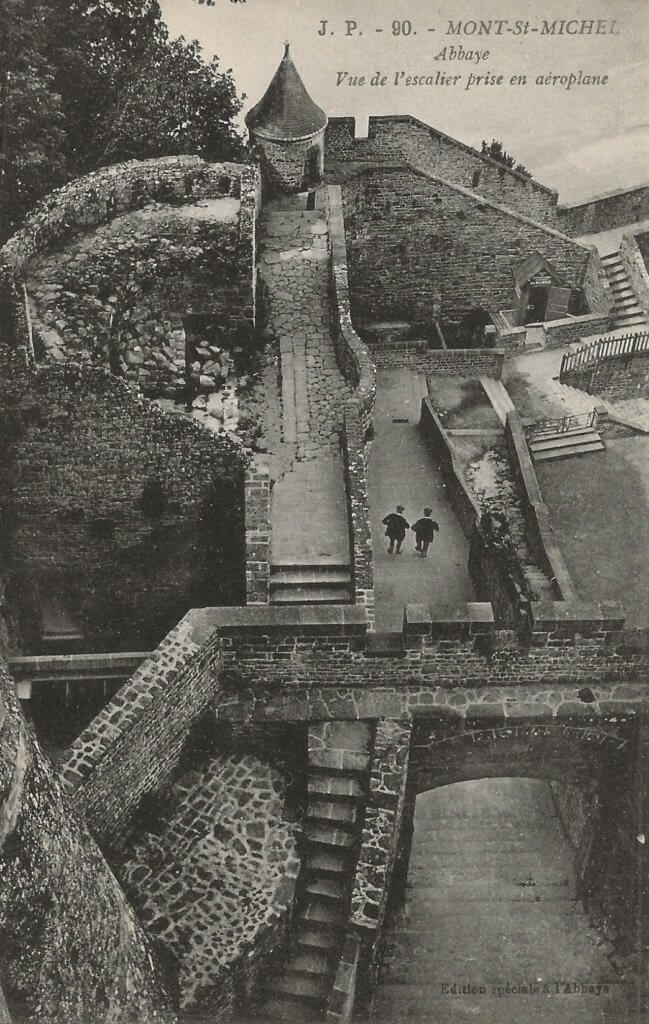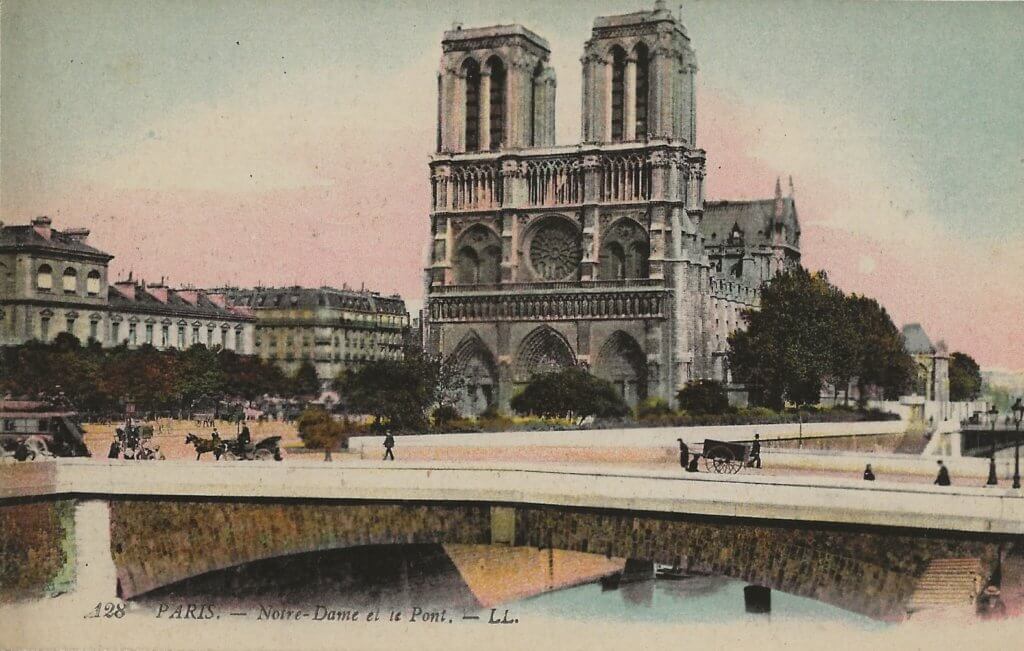Brest, Feb 4, 1919
Posted by Joel C. Swisher on February 4, '19
-

Dear Helen,Have just returned from a 7 day furlough to St. Malo. We were allowed 7 days there and whatever time is necessary for travelling both ways. In all we were gone from camp 13 days.
St. Malo is a small port between Brest and Le Havre and before the war was quite a summer resort for English and American rich. It has a large number of first class hotels and a good beach. When I was there it was too cold to try “jumping the breakers.” The government paid our expenses at the hotels and our carfare going and returning. If we stop any place along the way it is at our own expense.
On the way there I stopped for a night and a day at the city of Rennes. It is a city of about 100,000 and excepting Paris is the most up to date French city I have seen. Fine buildings and streets and an up to date street car service. In the morning a man in civilian clothes spoke to me in English and offered to show me about the town. Said he did that every day for American soldiers passing thru that town. Said he did it to help repay the debt his country owed America. Called himself Councillor of Belgium. His name is Francois Letist, and his father is a professor in the University of Louvain. I have not been able to learn what kind of office he holds.
He took me thru the Palace of Justice. A building which was built in 1640 and truly deserves the name of palace. The walls and ceilings of the rooms are hand carved in oak and covered with old gilt all of which has not been touched since the building was put up but which is as fresh as if done last year. It contains one painting worth $250,000 and 6 hand woven tapestries each worth a half million and two worth a million each. He also took me thru the Museum where I saw some paintings brought there from the Cathedral at Antwerp to save them from the Germans. Among them the “Elevation on the Cross’ and “The Descent from the Cross” by Rubens. Both are very famous. In another room of the same museum in a five foot glass box I saw the body of Mark Antony, the man who buried Caesar.
At St. Malo one of the nearby places of interest was the castle of Queen Anne in 1382. Another one was the island abbey of Mt. St. Michel. It is one of the wonders of western Europe for historic and picturesque interest. It is a rocky island about a mile from the mainland opposite the boundary between Britainy and Normandy. The work was started in 709 and the present church was started in 1150 and the rest in 1400. I sent you a picture post card of the place. From that you can form some idea of what the place looks like from the outside. The inside is also mighty interesting, as the place was used as a political prison for several centuries, especially during the French Revolution. Some of the dungeons still have the skeletons in them as when the prisoners died. The church is built on the top of the island and has some wonderful architecture.
Louis XI founded the Order of the Knights of St. Michel. Charles Martel and Charlemagne also often visited the place.
On the way home we went about 3OO miles out of our way to visit Paris. [Ed.: That is, in the wrong direction.] It was worth the effort altho we only were allowed 13 ½ hours there. That surely is a wonderful city and deserves the name of gay Paree. We saw most all of the important points of interest altho we had to see them on the fly. Paris has many wonderful buildings and boulevards and bridges, but the most up to date thing I have seen in France is the Paris subway system. They say it is the best subway system in the world and I easily believe it. We also went past the place where the Peace Conference is sitting. Were in the Notre Dame Cathedral, Hotel de Invalides, Napoleon’s Tomb, and a few other buildings. It would take a week or two to see the place right.We are back at Brest now, which is unanimously decreed as the most disagreeable place in France, probably the world. In Paris and for 300 westward there was four inches of snow and lots of ice, the air clear and frosty. Here it is raining every day as usual. Have not the least idea when we will start home but the way matters stand now I will feel lucky if I get home before Decoration Day.
Wishing you the best of luck,
Sincerely,
Joel C. SwisherJ.C.Swisher
Co.B 25 Eng.[Ed. Note: (Helen Swisher Davenport) Joel does not mention in either this letter or the one to his family what happened to him after he left Paris. Actually they were in Paris “illegally.” Paris was definitely “off limits” to the American soldiers for some reason after the war. No “leaves” were granted to Paris. But Joel and his friend “missed” their train in Paris, or their supposed “connection”. They managed to talk an M.P. into granting them a temporary pass into Paris while they “waited” for the next train that evening. The M.P. did so, but with threats that they be on the next train “or else!”
As they left Paris they were in one of the first four cars of the train. The second car, I think. Sometime during the night the train stopped at a little station. Joel and his friend were hungry, and they saw a vendor selling candy. They got off the train to buy some, but while they were doing this, the train pulled out of the station. They had to run and grab the railing on the last car of the train in order to get on. They then decided to sit on the last car of the train, rather than try to find their old seats. Some fifteen minutes later they were jolted from their seats! A terrible wreck had occurred! Everyone in the first four cars of the train were killed! Years later he said, “If it hadn’t been for my complaining stomach I would have been killed in that train wreck!—I owe my life to my stomach!” ]